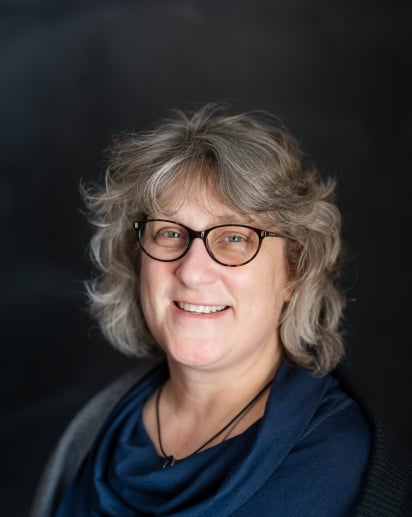You have /5 articles left.
Sign up for a free account or log in.
Amanda Graham is many things. She is the academic director for the Arthur L. Irving Institute for Energy and Society at Dartmouth College. She is an alternative academic, having received her Ph.D. in environmental communication from the University of Washington. She is my friend and close colleague at Dartmouth. And now, Amanda is the driving force behind a new Coursera course, Energy Justice: Fostering More Equitable Energy Futures. Amanda graciously agreed to answer my questions about her Coursera course, working with a team and the changing contours of an alt-ac career.
Fostering More Equitable Energy Futures. Amanda graciously agreed to answer my questions about her Coursera course, working with a team and the changing contours of an alt-ac career.
Q: Tell us about your new Coursera course in energy justice. Why did you decide to create this course?
A: The course really came out of a twin set of realizations. The first is that energy justice is a vital but often overlooked dimension of transitioning to cleaner, more climate-friendly energy systems. The second is that many people who care about and work in energy and climate are really unsure about what qualifies as energy injustice, how big of a problem it is and how to do something about it. I was pretty unsure myself, and when I looked for help, I couldn’t find a course or book or pathway that quite fit.
The course includes three main parts: an introduction to energy justice and some of its roots, an examination of injustice in the context of energy and society, and an exploration of real-world examples of energy injustice and tools for addressing them. I really love the voices we were able to include—the incomparable James Baldwin; the visionary Shalanda Baker; my wonderful colleagues from Dartmouth, Rice University and Arizona State University; and many more.
Q: You worked with a team of instructional designers, learning technologists and media educators to create Energy Justice. Can you share with us what that process was like? And do you have any advice for other educators who are thinking about creating an online course?
A: I am so lucky to have worked with a really fabulous team. Going into this project, I had only a hazy view of who would do what to build this course. I knew it would be a big investment of time and energy, but I really didn’t know how intricate the process would be. I also didn’t know what it would mean to scope a project like this effectively. I have a tendency to be wildly ambitious in how much I want to teach—the team at Dartmouth helped tame this scope monster and develop a course that was much more tightly targeted, and hopefully more impactful, than my original vision.
This project has made me a better thinker and a better teacher. The course-development process was a crucible for the close alignment of learning objectives, pedagogy and content, and the result was much crisper and more time-efficient for the learner than a traditional course. And it was fun! I really enjoyed creating short content elements designed to draw the learner in for a very specific purpose and building in the wiring that held it all together. My advice: pick a topic you really believe in, box out twice as much time as you think it will take and assemble a team that is skilled in instructional design, interested in the subject matter and willing to ask tough questions and keep you on task. Treat them as full partners in the project.
Q: Creating Energy Justice represents a new chapter in your alternative-academic career. Can you offer any insights or advice for other traditionally trained academics who are thinking about crafting a nontraditional academic career?
A: Keep clear sight on what feeds your soul. Alternative academics are hybrids by definition and are drawn—and pushed and pulled—in multiple directions. Staying on track requires knowing what inspires and rejuvenates you. Building this course did that for me more than I could have foreseen.
For me, the nontraditional academic pathway combines the drive for impact with the drive for intellectual engagement, which is a highly stimulating environment—as long as the administrative and managerial dimensions don’t take over. I’ve learned to seek out opportunities to collaborate in knowledge creation—if I am not accountable to a partner or team, more time-bound operational responsibilities tend to take over. Search out your own mechanism for sustaining a healthy push and pull—don’t stop till you find it—and don’t let it go.




